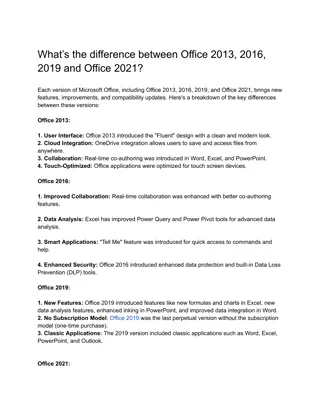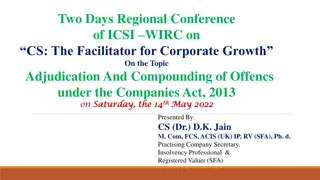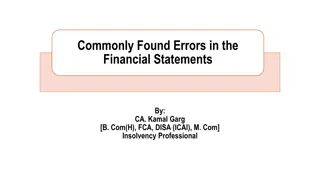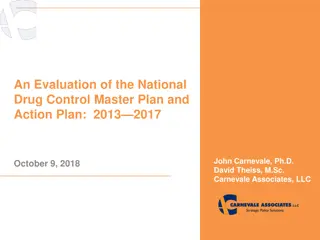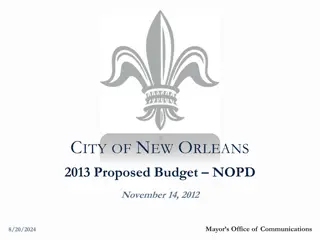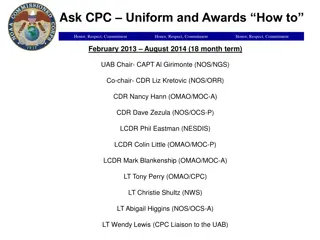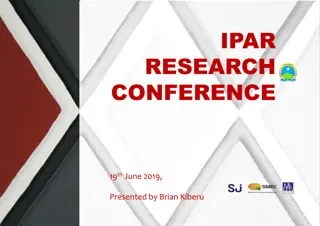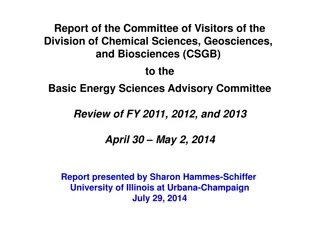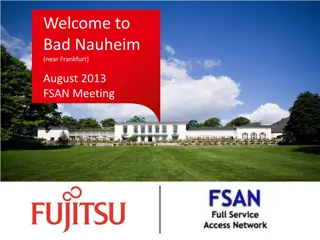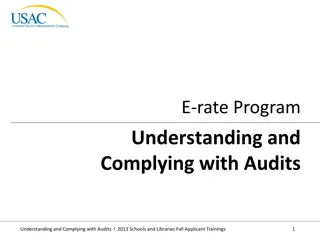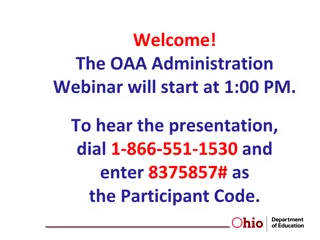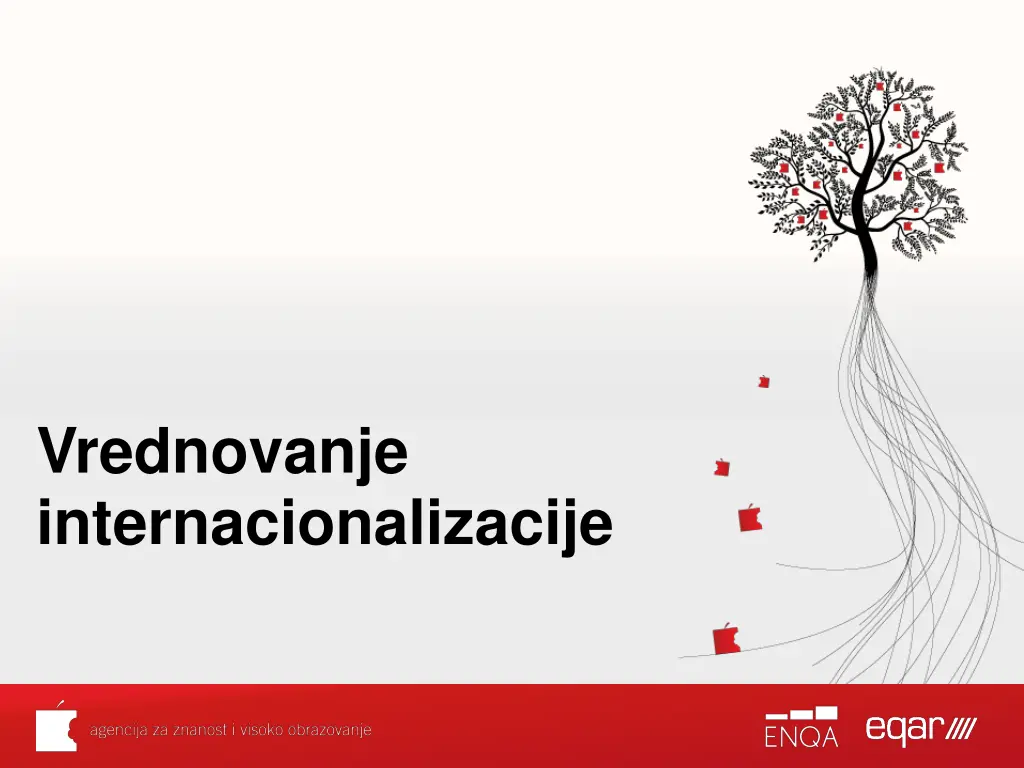
Vrednovanje Internacionalizacije visokog obrazovanja - Projekt CeQuInt
Projekt CeQuInt je inicijativa Europskog konzorcija za akreditaciju u visokom obrazovanju s ciljem izrade zajedničkog europskog okvira za vrednovanje internacionalizacije programa visokog obrazovanja. Partneri u projektu uključuju organizacije iz 11 zemalja koje zajedno rade na pilot projektima i standardima vrednovanja. Projekt se fokusira na definiranje vizije internacionalizacije, postizanje ciljeva učenja te evaluaciju postignutih rezultata radi poboljšanja programa.
Uploaded on | 2 Views
Download Presentation

Please find below an Image/Link to download the presentation.
The content on the website is provided AS IS for your information and personal use only. It may not be sold, licensed, or shared on other websites without obtaining consent from the author. If you encounter any issues during the download, it is possible that the publisher has removed the file from their server.
You are allowed to download the files provided on this website for personal or commercial use, subject to the condition that they are used lawfully. All files are the property of their respective owners.
The content on the website is provided AS IS for your information and personal use only. It may not be sold, licensed, or shared on other websites without obtaining consent from the author.
E N D
Presentation Transcript
Vrednovanje internacionalizacije
Projekt CeQuInt Certificate for the Quality of Internationalisation izrada zajedni kog europskog okvira (kriterija i standarda) za vrednovanje internacionalizacije visokih u ili ta i studijskih programa
Partneri u projektu CeQuInt Pokrenut na inicijativu Europskog konzorcija za akreditaciju u visokom obrazovanju (ECA) suradnja 14 partnera iz 11 zemalja: NVAO (Nederlands-Vlaamse Accreditatieorganisatie) - Nizozemska AR ( sterreichischer Akkreditierungsrat) - Austrija FIBAA (Foundation for Int. Business Administration Accreditation) - SQAA (Slovenian Quality Assurance Agency for Higher Education) - Slovenija ASHE (Agency for Science and Higher Education) - Hrvatska CTI (Commission des Titres d Ing nieurs) - Francuska PKA (State Accreditation Committee) - Poljska ANECA (National Agency for Quality Assessment and Accreditation) - panjolska ACA (Academic Cooperation Association) - Belgija AQU (The Catalan University Quality Assurance Agency) - panjolska ZEvA (Zentrale Evaluations- und Akkreditierungsagentur Hannover) - Njema ka FINHEEC (Finnish Higher Education Evaluation Council) - Finska AERES (Evaluation Agency for Research and Higher Education) - Francuska DAAD (German Academic Exchange Service) - Njema ka
Pilot projekt Tijekom 2014. pilot vrednovanja 4 visoka u ili ta i 8 studijskih programa Diseminacija rezultata projekta po . 2015. Pilot u RH: Medical Studies in English, Medicinski fakultet Sveu ili ta u Zagrebu
Standard 1: Vision on internationalisation Criterion 1a: Shared vision The programme has a vision on internationalisation. This vision is supported by stakeholders within and outside the programme. Criterion 1b: Verifiable objectives The vision on internationalisation includes verifiable objectives. Criterion 1c: Improvement-oriented evaluations The vision on internationalisation is evaluated periodically and this evaluation forms the basis for improvement measures.
Standard 2: Learning outcomes Criterion 2a: Intended learning outcomes The intended international and intercultural learning outcomes defined by the programme are a clear reflection of its vision on internationalisation. Criterion 2b: Student assessment The methods that are used for the assessment of students are suitable for measuring the achievement of the intended international and intercultural learning Criterion 2c: Graduate achievement The programme can demonstrate that the intended international and intercultural learning outcomes are achieved by its graduates.
Standard 3: Teaching and Learning Criterion 3a: Curriculum The content and structure of the curriculum enable the achievement of the intended international and intercultural learning outcomes Criterion 3b: Teaching methods The teaching methods enable the achievement of the intended international and intercultural learning outcomes. Criterion 3c: Learning environment The learning environment is suitable for achieving the intended international and intercultural learning outcomes.
Standard 4: Staff Criterion 4a: Staff composition The composition of the staff (in quality and quantity) facilitates the achievement of the intended international and intercultural learning outcomes. Criterion 4b: International experience and competences Staff members have sufficient international experience, intercultural competences and language skills. Criterion 4c: Service provided to staff The services provided to the staff (e.g. training, facilities, staff exchanges) are in line with the staff composition and facilitate international experiences, intercultural
Standard 5: Students Criterion 5a: Student group composition The composition of the student group (diversity of national and cultural backgrounds) is in line with the programme s vision on internationalisation. Criterion 5b: International experience The international experience gained by students is adequate and in line with the programme s internationalisation vision. Criterion 5c: Services provided to students The services provided to the students (e.g. information provision, counselling, guidance, accommodation, Diploma Supplement) are adequate and in line with the composition of the student group.
Assessment scale (at the level of standards) Generic quality: The quality that can reasonably be expected in an international perspective from a higher education bachelor s or master s programme. Unsatisfactory - The programme does not meet the current generic quality for this standard and shows serious shortcomings. Satisfactory - The programme meets the current generic quality for this standard and shows an acceptable level across the standard s entire spectrum. Good - The programme systematically surpasses the current generic quality for this standard across the standard s entire spectrum. Excellent - The programme systematically and substantially surpasses the current generic quality for this standard across the standard s entire spectrum and for this standard it can be regarded as an international example.
Ishod postupka Overall Assessment Based on its vision on internationalisation, the programme has implemented an effective internationalisation strategy, which demonstrably contributes to the quality of the teaching and learning provided. Decision A programme receives the Certificate for Quality in Internationalisation when at least 3 standards are assessed as good or excellent and no standard is assessed as unsatisfactory

